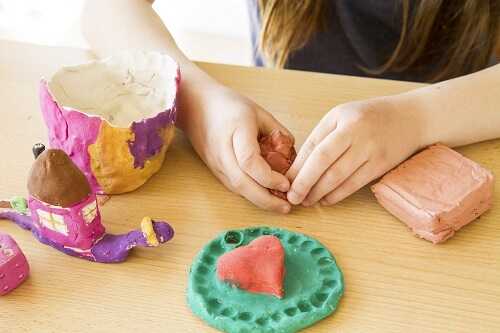Many of us remember the first time in elementary school or even pre-school that we experienced dough crafts. It might have been called kitchen clay, play clay or even salt dough. More than likely most of us remember that first ornament that was created and more often than not, it can be found in our mother’s memory box. When dough crafts are thought of, it brings to mind fond memories of creating those baked festive ornaments for holidays and seasons. Why did we as children, experience dough crafts in school? Here is a little crafty teacher secret: they offer children a way to express creativity and explore their imagination while developing both fine and gross motor skills. The kneading and shaping of the dough is the key to this developmental activity.
Some people are new discoverers, while others are rediscovering the dough crafts. For parents, it offers the chance to introduce this fun kitchen activity to children and for others it’s the chance to rediscover this art material that you can make at home. This versatile art media offers a really good base for decorative sculptures, wall hangings, table top center pieces, baskets, wreaths and just about anything you can imagine. It may be colored by simply adding food colorings or it may even be painted and finished. The wondrous thing about dough crafts is that it offers so many different textures for the artisan to work with. This ranges from soft and pliable to rough and crumbly. Texture is all about your ingredients and the process methods. Most of the soft pliable dough is cooked; while the grainy, rough and crumbly textures are made from uncooked mixes. What ever the texture, the dough material is made by hand. This is truly one art media that is a hundred percent handcrafted.
Origin of dough crafts
The origins of this craft is said to date back to Egyptian times; however, popularity peaked during the nineteenth century in Germany. Recipe variations have been handed down and published in newspapers and magazines since the turn of the century. The New York Times even published a recipe for it in 1947. Recipes can even be found printed on boxes of products such as baking soda. Today, you can find recipes on the manufacturers’ websites as well as the internet. The dough crafts have been described as folk art, rustic or even country, but it does span across national borders. It can be found in art around the world. The ease of this art material is what contributed to its popularity world wide. There are other characteristics such as: biodegradable, environmentally friendly, does not stain, and has easy cleanup.
This is one type of art medium that has stood the test of time!

